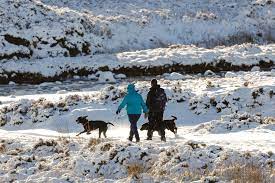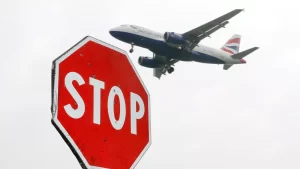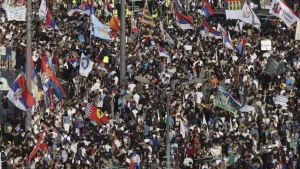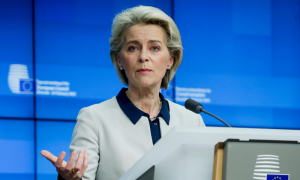Why is it so cold in the UK right now – and how long will Arctic chill last?

London: As the coldest temperatures in 14 years are predicted to hit the UK overnight, with parts of Scotland potentially plunging to -15C, freezing conditions are expected to remain across the country for the next few days.
The last time temperatures dropped this low in Britain was during the “big freeze” of January 2010, when -22.3C was recorded in Altnaharra, Scotland.
The Arctic air moving south across the UK is causing havoc and misery, leading to many questions about how long it will last.
The shifting polar jet stream is shooting cold air at us straight from the Arctic. While there is a hot and a cold side to the steam, a narrow band of air flowing quickly at high altitudes, the UK is on the northern, cold side.
The length of the cold snap isn’t helping either: the buildup of snow over so many days is allowing for temperatures to get colder and colder.
A compounding issue is that it is an El Niño year: a phenomenon that occurs every three to four years, when the jet stream shifts course, causing warmer than average sea surface temperatures that, in turn, generate atmospheric waves. These create seismic shifts in winter weather across Europe. During El Niño years, northern Europe can be colder and drier, with southern Europe getting more rain. El Niño summers in the UK can be hotter and drier.
If it’s any comfort, we haven’t got it that bad compared with others. While it is 5C to 6C colder than usual for this time of year in the UK, northern Scandinavia is about 20C colder than usual. They, however, are largely taking it in their stride with social media full of people putting their babies outdoors to sleep in the fresh air and engaging in the Norwegian passion for friluftsliv, or “living in the open air”.
For those who like their open air more balmy, however, the hot side of the jet stream is now anywhere south of France: anyone there at the moment is basking in warmer temperatures than usual.
Dr Matt Patterson, a postdoctoral research assistant in atmospheric physics at the University of Oxford, finds this an interesting question. “I find it quite interesting that we’re all freaking out about it being so cold at the moment,” he said. “These temperatures would have been a much more common occurrence 20 to 30 years ago.”
We’ve acclimatised to the new normal, said Patterson: the overall trend towards warming. “We call it the ‘shifting baseline syndrome’,” he said. “Climate change means we’re not as used as we once were to very cold days. We’ve forgotten what it used to be like before the warming trend.”
The truth is that, despite this cold snap, warm days are getting warmer and cold days are getting warmer as well. In other words, we’re not getting many of these very cold days, which are just the natural, normal variability of weather.
The weekend will be milder, but a very different type of potentially disruptive weather will be arriving as the cold retreats. Deep areas of low pressure are forecast to push in, bringing potentially disruptive stormy weather over the weekend.





